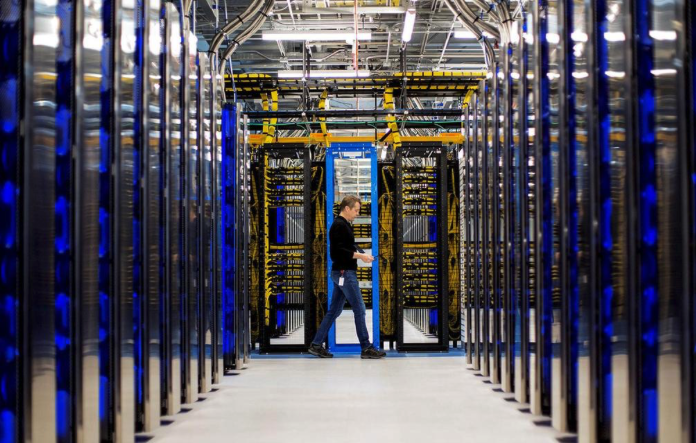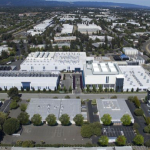Data Center Market Is Booming Amid Shift To Cloud

Sector is seeing more deals as data center landlords and cloud providers seek more facilities
Data centers are hot properties, even as many businesses are shedding them to shift their information-technology operations online, to the cloud.
The warehouse-sized facilities that house racks of servers and other hardware can be costly and inefficient to manage. But some are being snapped up by data-center landlords, known as co-location service providers, which lease space in the facilities to cloud services offered by Amazon.com Inc., Microsoft Corp. and other tech companies. The rapid growth of cloud computing is heating up competition for new and used facilities and driving consolidation among data-center operators.
Market-intelligence firm Synergy Research Group Inc. recorded 52 mergers and acquisitions in the data-center market between January and June, an 18% increase from the first six months of 2018, and more than the total number of deals for all of 2016.
Most of the deals involve data-center operators buying competitors or forming joint ventures with each other, said John Dinsdale, Synergy’s chief analyst. But the numbers also include acquisitions of facilities cast off by companies moving to the cloud, he said.
Eight data-center deals closed in July, with 14 more pending formal closure agreements, Synergy said in a report last week. It has recorded a total of 300 data-center M&A deals since 2015 with an aggregate value of more than $65 billion.
Co-location services typically provide physical space, power and cooling systems for servers and other computer hardware used by businesses, while connecting them to local communications grids and networks of interconnected data centers. Prized locations tend to be near cheap power sources or have access to communications infrastructure.
The number of data centers world-wide that are owned and operated by cloud service providers, data-center landlords and other technology firms rose to roughly 9,100 this year from 7,500 last year, according to International Data Corp. It expects that number to top 10,000 by 2020.
Meanwhile, the number of data centers owned and operated by companies outside the technology sector to run their own IT systems is expected to decline, to 28,500 in 2020 from 35,900 in 2018, IDC said. Gartner Inc. estimates that 80% of large enterprises in North America will have shut down all of their own data centers by 2022, up from 10% in 2017.
California-based Equinix Inc., one of the world’s biggest data-center landlords, closed a $3.6 billion deal two years ago to purchase 24 data-center sites from Verizon Communications Inc. Other key players include Digital Realty Trust Inc., CyrusOne Inc. and Iron Mountain Inc.
“We have seen an uptick in enterprise data centers for sale and have evaluated a number of them,” said Jon Lin, president of Equinix, Americas.
He said many previously owned data centers were designed around a company’s specific needs, making it costly to convert them into multitenant facilities. They also are typically located near the previous owner’s headquarters, rather than strategic network hubs, Mr. Lin added. Beyond the Verizon acquisition and a handful of other telecom deals, the company has avoided used enterprise data centers, he said.
Richard Villars, research vice president for data centers and cloud at IDC, said co-location service providers are becoming “much more choosy” about the used data centers they buy.
“They’re only interested in sites in important cities where they don’t have coverage, or need to quickly expand,” he said. And while they prefer facilities with up-to-date equipment, Mr. Villars said, “in many cases they are more interested in the land and will build a new facility.”
That is a big change from a decade ago, when outside investors or outsourcing firms—not data-center operators—were more likely to “take your old data center off your hands,” he said. These buyers typically snapped up facilities that later proved to be outdated or were located in areas with bad connectivity—facilities that industry insiders dubbed “white elephants,” he added.
A key draw of cloud computing for businesses is the high cost of operating their own data centers, which consume massive amounts of energy.
Cisco Systems Inc. last week said it is looking into shutting down 30% of its 22 data centers world-wide within the next five years, and instead transferring more data to public cloud services. Jacqueline Guichelaar, the company’s chief information officer, said the move is aimed at cutting energy use and costs. Angus Loten



